The truth about acne anxiety: What causes it and how do you deal with it?
We often hear about how anxiety can cause acne, but what about the other way around? For some, having acne can be stressful because of the way it makes us feel about ourselves and how we think others perceive us. CNA Women spoke to clinical psychologists who share ways of coping with it.
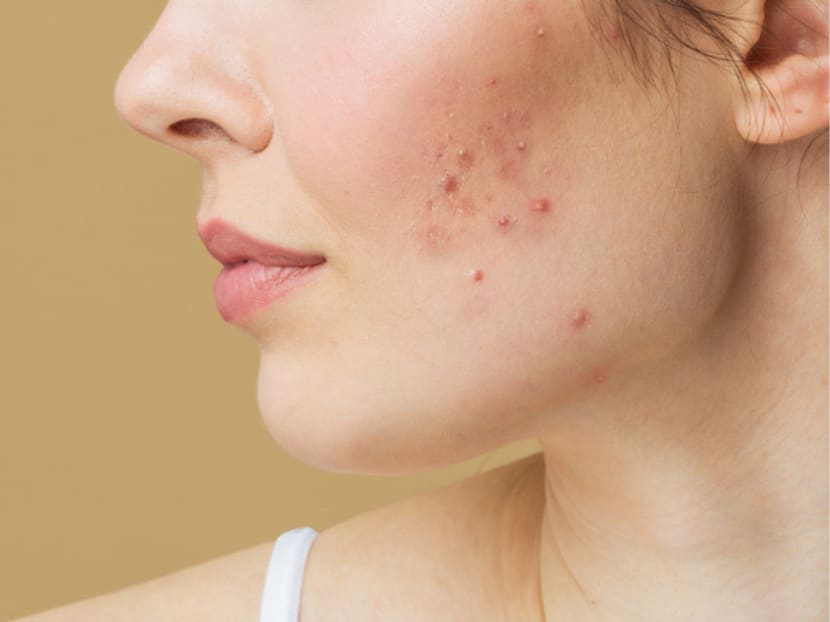
Acne goes beyond being a physical condition; researchers say it has psychosocial effects that impact on our mental health. (Photo: iStock/Aleksandr Rybalko)
“There is no single disease which causes more psychic trauma, more general insecurity and feelings of inferiority and greater sums of psychic suffering than does acne vulgaris.”
In 1948, two dermatologists – MB Sulzberger and SH Zaidems – wrote about the psychosocial effects of acne in their study. More than 70 years later, what they said continues to ring true.
Acne isn’t simply a medical skin condition, it has an effect on mental wellbeing as well.
For some women, managing their acne is as simple as sticking on a pimple patch or applying concealer, and getting on with their day. But for others, it is a more exhausting experience, where they feel self-conscious and helpless at the pimples on their face, and may want to avoid going out.
What these women experience is acne anxiety.
WHAT IS ACNE ANXIETY?
A dermatologist at University of California San Francisco Health, Dr John Koo, investigated the negative psychosocial effects of acne in a 1995 study.
Through a series of interviews with patients, he concluded that acne can cause a decrease in self-esteem, a high preoccupation with the skin condition, as well as feelings of embarrassment that can lead to social withdrawal.
One participant, for example, described her pimple as something she felt was “three times as big as it really is”, and that everyone saw her acne before anything else about her appearance.
These psychosocial symptoms make up or contribute to acne anxiety, or that feeling of fear, concern and unease over the skin condition.
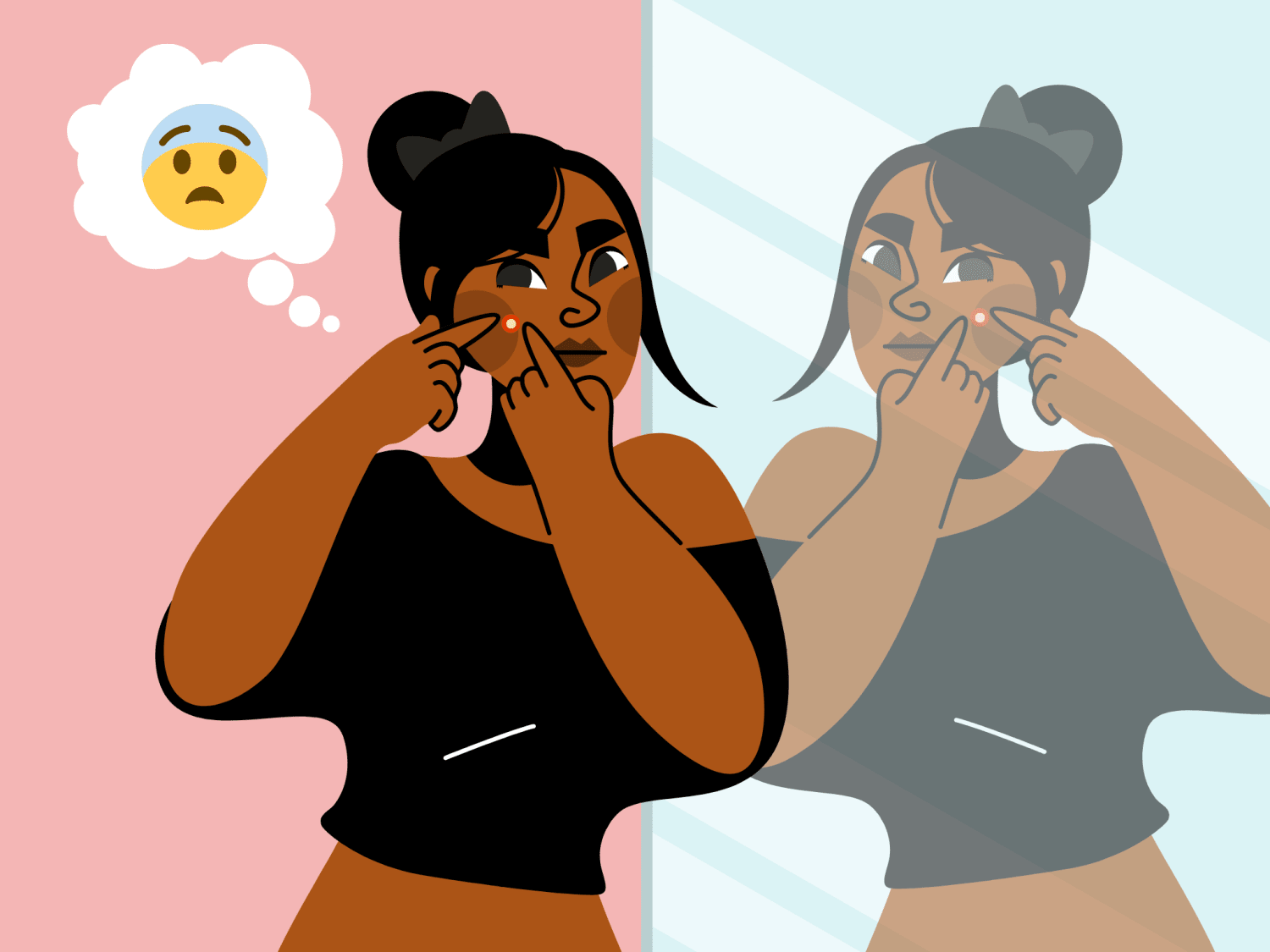
THE IMPACT OF ACNE
A meta-analysis in 2020, led by Professor Danielle Samuels from the University of Massachusetts, found that feeling anxious over acne is a reality for many, and that those who have acne tend to experience more anxiety than those who are acne-free.
Prof Samuels further found that acne-anxiety levels were significantly higher among adults compared to adolescents. While acne is considered a normal part of life when you're a teenager and even seen as a rite of passage, adult acne makes sufferers feel as if they have not gotten past their teenage years.
The adults feel “out of step with the acne-free adult peers and sociocultural beliefs that acne is a teenage problem”, said Prof Samuels.
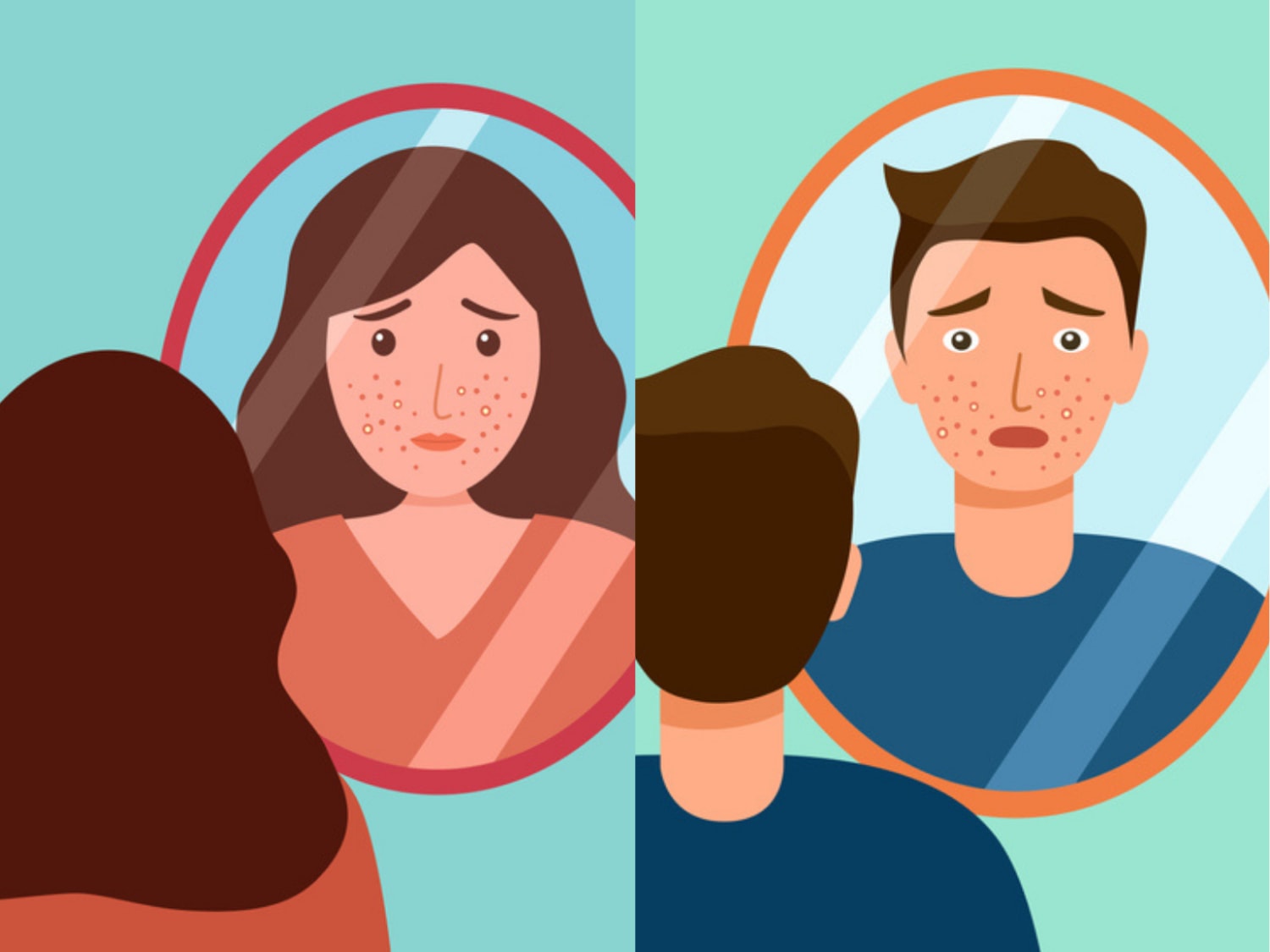
One study revealed that females are not only more likely to develop acne than males, they are also disproportionately more mentally affected by acne, particularly if it developed at a later stage in their lives.
This gender difference is likely due to cultural forces that place different levels of importance in appearance for males and females, said psychology researcher SC Kellett - women tend to be more subjected to norms surrounding appearance whereas men tend to be more judged for their intellectual and career goals.
WHAT’S THE LINK BETWEEN THE SKIN AND BRAIN?
According to two local clinical psychologists CNA Women spoke to, anxiety over acne stems from a fear of anticipated judgement or the expectation that we’re always judged by others.
Dr Karen Pooh, a clinical psychologist at Alliance Counselling, explained that our brains are wired to have a negativity bias. That means we are always on the lookout for impending danger, psychological ones included, to keep us safe.
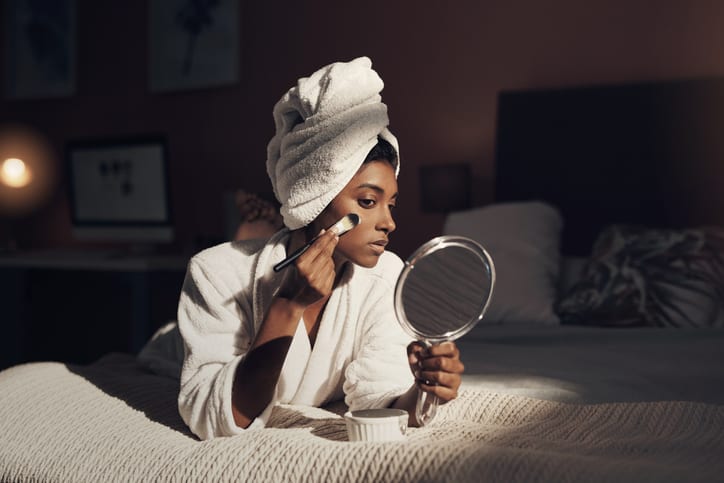
Women feel the brunt of this. “For women, there is a strong sense of worth tied to our appearance. If they don’t look a certain way they will be considered incompetent. It’s called the halo effect,” explained Dr Pooh.
The halo effect is the cognitive tendency for others to allow one positive trait (that is, better appearance) to positively control the overall perception of that person. The more pleasant looking you are, the better you are perceived by others.
Clinical psychologist Bhavani Deva of Psychology Blossom describes acne as something akin to clothing – it sits on our exterior and influences the perception of others. Except unlike clothes, we can’t instantaneously change what is on our face.
“Inevitably, skin is something that is tied together with us as we speak to people. It's not something that can be changed as we wish. As a result, we start to think that people are judging us based on our skin, which we cannot change,” Deva said.
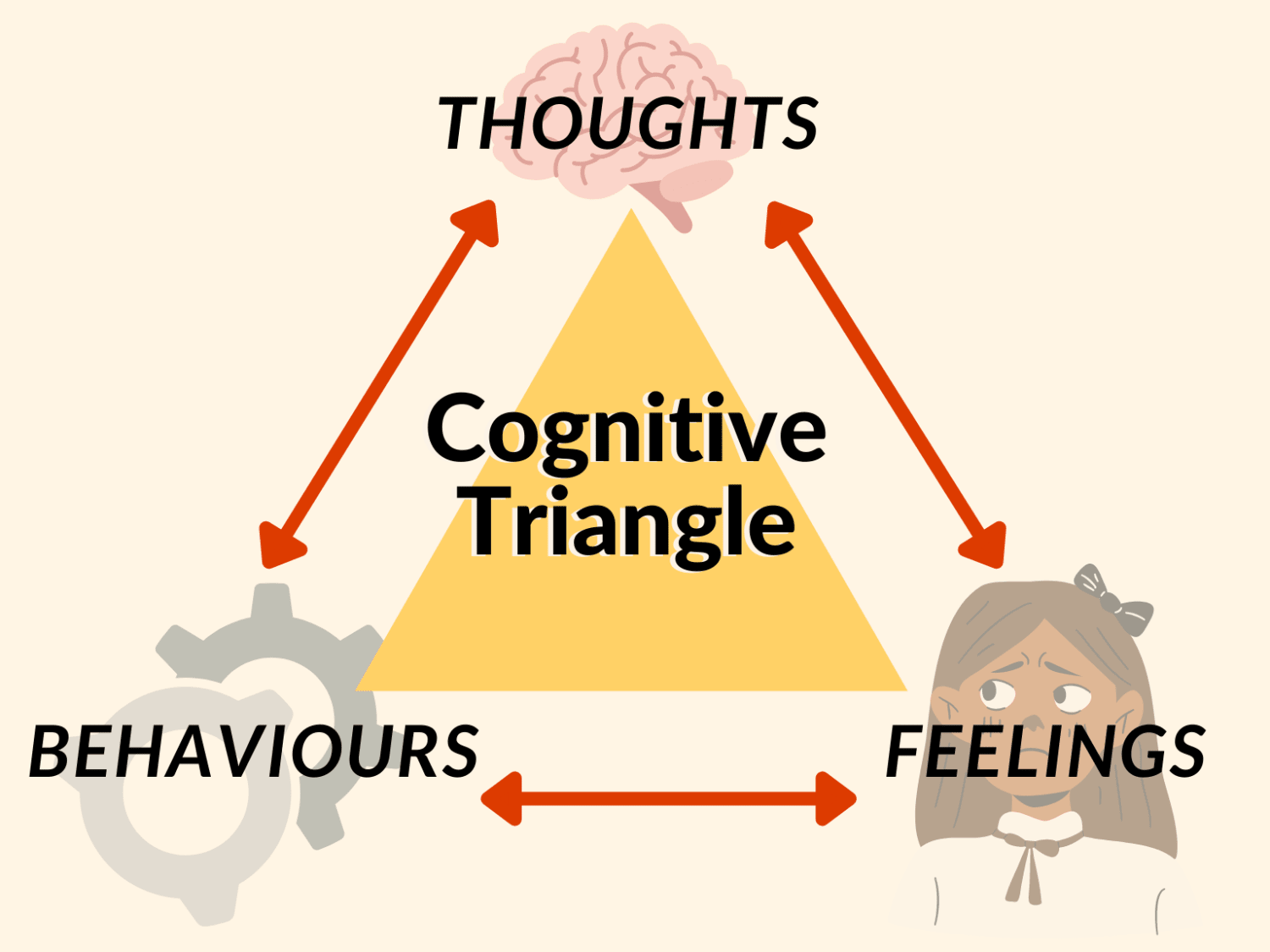
According to her, people function on a cognitive triangle where thoughts, feelings and behaviours interconnectedly affect one another. When thoughts of someone judging your skin float in, you may then develop feelings of anxiety and shame.
“Individuals stuck in this vicious cycle may avoid going out, even at the expense of losing their job. These are the most extreme scenarios,” she added.
Those who experience acne anxiety may also feel a sense of helplessness, especially if they have tried various remedies, unsuccessfully. This then increases their self-consciousness, coupled with the feeling that the acne is an issue for which there is no solution, said Deva.
But here’s the thing: Acne anxiety is not a given for acne sufferers. Both clinical psychologists said that it depends on how one perceives their own skin and the world around them.
“The severity of acne doesn’t correlate with how distressed a person can be. When an overemphasis is placed on appearance, even a small pimple could affect them greatly,” said Dr Pooh.
RELATED:
HOW DO YOU DEAL WITH ACNE ANXIETY?
Acne anxiety can happen to anybody, not just those not who have been diagnosed with anxiety. At a mild level, people are still able to get on with their day and live normally, although, the current post-COVID situation hasn't made things easier.
After two years of masking up and very little physical interaction, it can be difficult for the acne-anxious to transition back into an unmasked life beyond Zoom and filters.
Deva recommends that the first step anyone who feels acne anxious can do is to practise mindfulness and try normalising the condition.
One technique she practises with her clients is the intentional act of reminding yourself, using cue cards with self-affirmations written on them, such as:
- Acne can be formed because I wear a mask.
- Acne does not need to control my life.
- Acne can come and it will go.
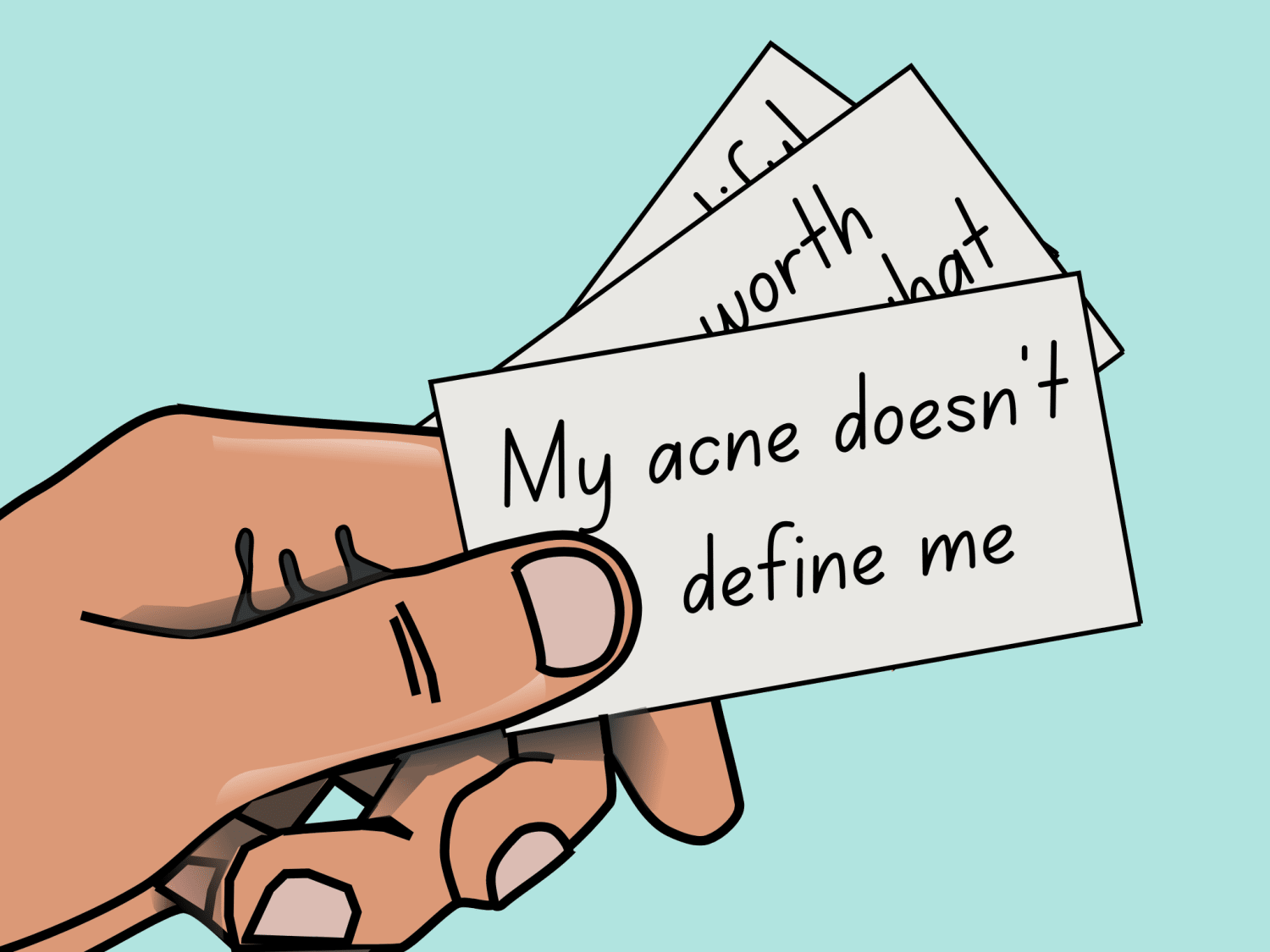
Reading the cue cards reminds the acne anxious to be mindful of the present and helps prevent anxious thoughts from taking over.
For those who feel too anxious to even attempt the cue cards, Deva suggests first trying progressive muscle relaxation, a method said to provide instant anxiety relief.
Try clenching your fists together for five seconds and letting go in a slow manner while exhaling. Once completed, you can then give the cue cards a go.
If, however, you are so acne anxious that it makes you deviate from typical behaviour or impairs your day-to-day functioning, for example, you're not able to shower or go to work, or if you start to withdraw socially, then Dr Pooh recommends seeking professional help. Speaking to a psychologist and undergoing cognitive behavioural therapy would be helpful.
CNA Women is a section on CNA Lifestyle that seeks to inform, empower and inspire the modern woman. If you have women-related news, issues and ideas to share with us, email CNAWomen [at] mediacorp.com.sg.



